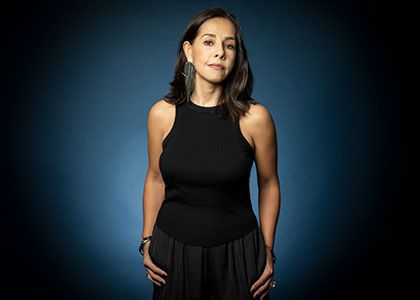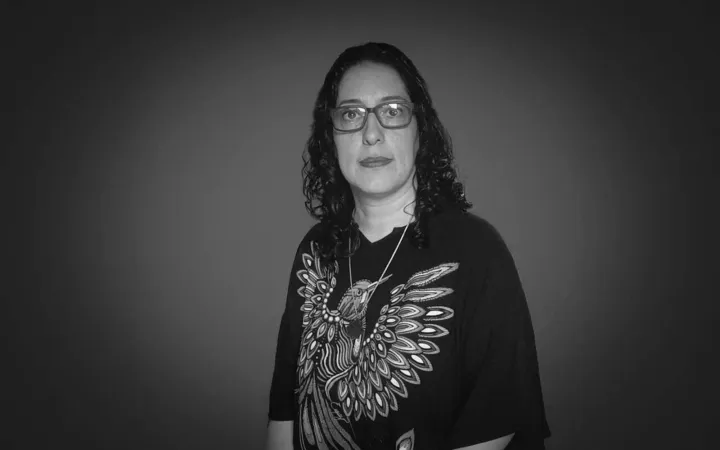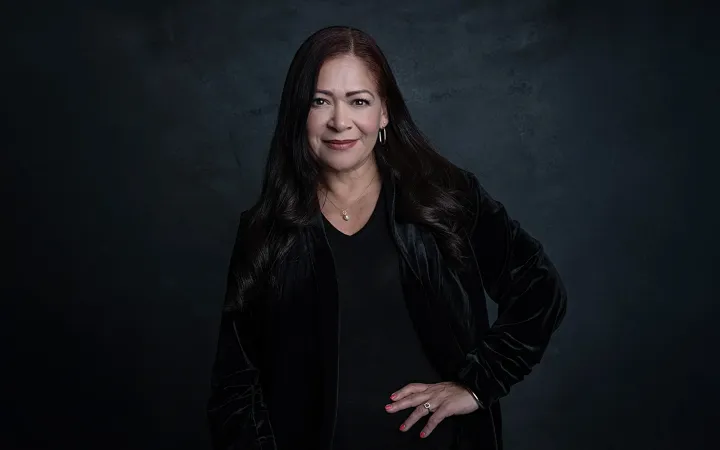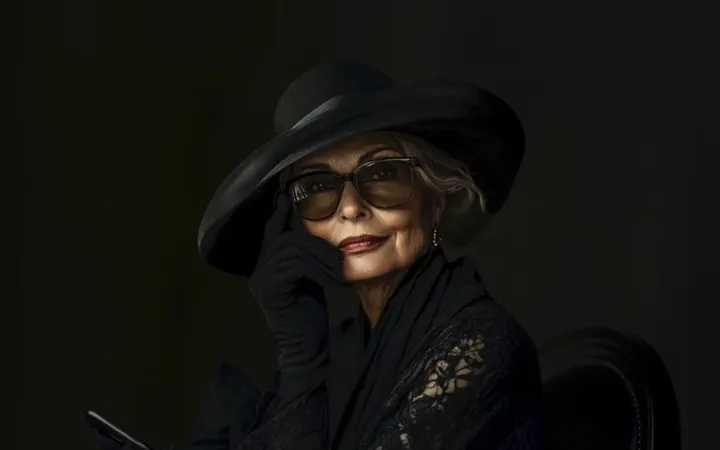
Por Valeria Villa

Cuando describimos a alguien pensamos en lo que tiene de único, sabiendo que cualquier cosa que digamos será solo nuestra percepción, incompleta, sesgada, producto de un juicio de valor.
Lo primero que diríamos al hablar de Sinead O´Connor constituye una elección relevante, por los claroscuros que atravesaron toda su vida.
Hace años que no pensaba en ella ni tampoco su música estaba en mis listas. Parece que la había olvidado pero la muerte suele ser un recordatorio de lo espectacular que fue la obra de alguien. Es triste pero así sucede y los homenajes en vida son muchos menos de los que reciben los muertos.
Sinead, la que me dejó muda la primera vez que la vi cantar Mandinka con esa voz imposible, con esos gritos controlados y esa forma de cantar rock. La imagen era la de una joven bella y muy enojada que usaba la música como terapia. Su pasado fue tormentoso: la niña violentada por su madre que se volvió una alumna problemática en todas las escuelas por las que pasó y que estaba obsesionada con Bob Dylan desde los 11 años, gracias a la colección musical de la madre, que escuchaba desde ópera hasta John Lennon.
Sinead, la que denunciaba el control que ejerció la iglesia en todas las mujeres de su familia. La opresión de la Iglesia en Irlanda fue una de muchas contra las que se rebeló. La adolescente de 14 años que enviaron a un internado de monjas porque era incontrolable. La maestra de guitarra de ese lugar descubrió el talento de la joven y la invitó a cantar en la misa de su boda.
Pronto se unió a una banda y comenzó a cantar en The badass cafe. Luego se fue a Londres. Su voz iba de un susurro a un aullido en un segundo. Su talento era desbordante, sus letras una catarsis sobre sus dolores más íntimos. Su banda fue una familia para ella y en esos años se sintió mucho menos sola.
Sinead se embaraza con 19 años poco tiempo antes de lanzar su primer disco: The lion and the cobra. Le sugieren abortar pero decide tener a Jake, su primer hijo.
Sinead, la rockera imponente pero tímida en las entrevistas, la mujer no binaria adelantada más de 30 años. La mujer embarazada con la cabeza rapada, que participaba en manifestaciones en Dublín para defender los derechos reproductivos de las mujeres. Agresiva pero hermosa, siempre atravesada por la contradicción, que enfurecía a sus entrevistadores que no dejaron de acosarla por su forma de ser y que le ganó el amor de la comunidad gay.
Sinead, la que cantaba Testament, sobre la crueldad y la muerte de su madre. La que denunciaba la discriminación que sufrían los cantantes de Rap y Hip-hop en los ochentas, cuando no se les consideraba músicos dignos de los Grammys. Cómo la molestaron por raparse la cabeza, por denunciar la vocación bélica de Estados Unidos y el racismo contra la comunidad negra. Sinead, una de las primeras canceladas por romper una foto del Papa Juan Pablo II en Saturday Night Live, para denunciar la pederastia al interior de la iglesia católica, que le costó amenazas de muerte, la prohibición de tocar sus canciones en el radio o de vender sus discos.
Lo siguiente que diré para describir a Sinead, es que luchó durante años con la enfermedad mental, consecuencia del maltrato que recibió a lo largo de toda su infancia. Sinead habló varias veces de su depresión, de tener un diagnóstico de bipolaridad, de pensar constantemente en el suicidio y de haber intentado matarse varias veces sin éxito, confesando que solo estaba viva gracias a su médicos. Sinead, madre de 4 hijos, incapaz de criarlos por su inestabilidad emocional, devastada por el reciente suicidio del más pequeño, parece haber terminado con sus días en la Tierra.
Nos queda Nothing compares to you, The emperor´s new clothes, todos sus discos. También su valentía para alzar la voz, su transparencia para hablar de su sufrimiento, y nunca dejar de ser lo que siempre fue: disruptiva.
Las opiniones expresadas son responsabilidad de sus autoras y son absolutamente independientes a la postura y línea editorial de Opinión 51.
Más de 150 opiniones a través de 100 columnistas te esperan por menos de un libro al mes.






Comments ()